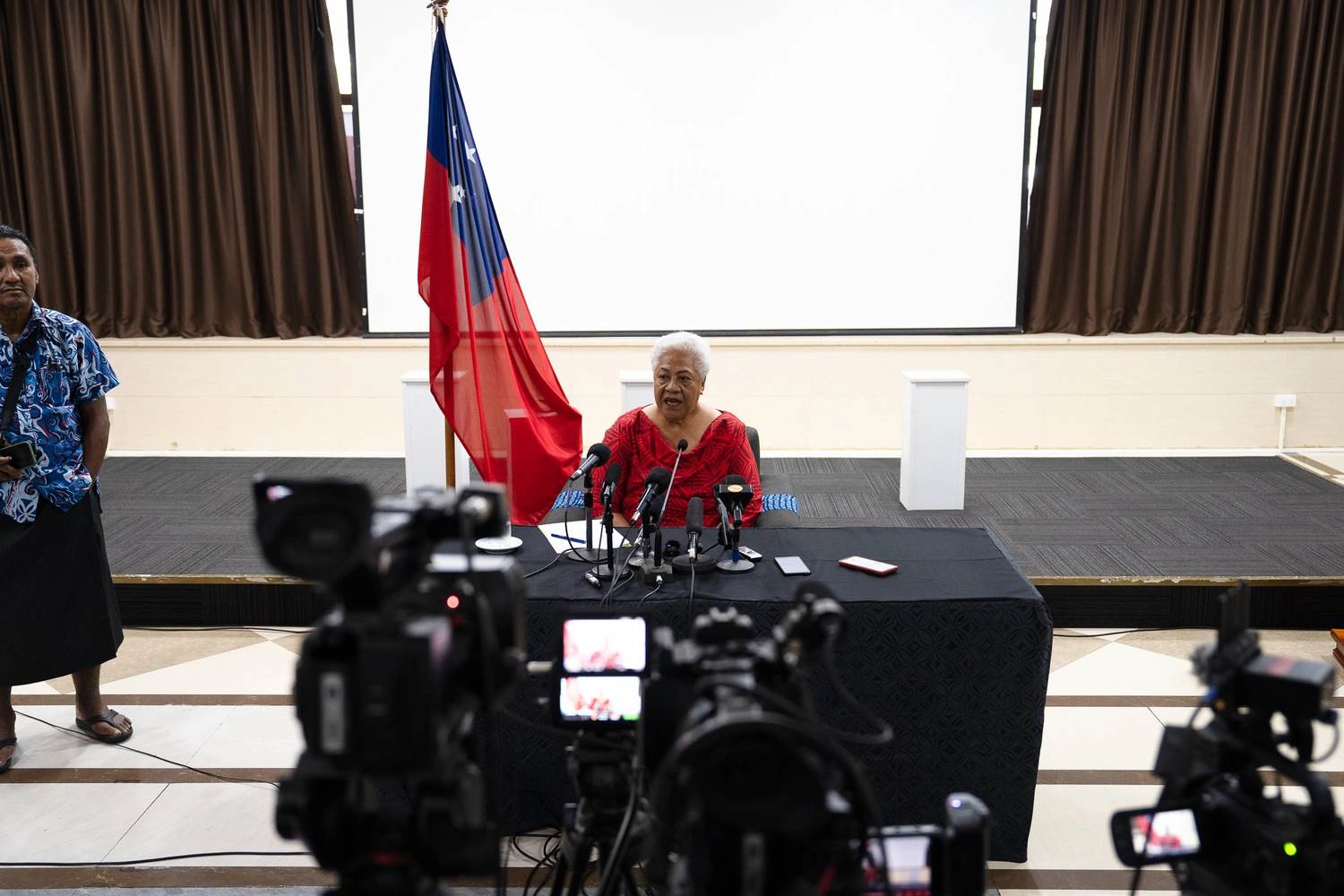Prime Minister Fiame Naomi Mataafa is ready to face constitutional processes and procedures over questions of confidence in her leadership.
In a statement distributed to the media at the Tui Atua Tupua Tamasese Efi Convention Centre on Tuesday, the government leader is steadfast in following the rule of law.
“Disregarding the rule of law will undoubtedly have far-reaching negative impacts on a whole-of-government scale, including the undermining of our judicial system and the abilities of our law enforcement agencies to fulfil their duties in maintaining law and order, and peace and harmony,” she pointed out.
“This is what we, as leaders, must work together to protect.
“Determining the issue of confidence in the Prime Minister’s leadership is a constitutional matter that rests with Parliament. It is not a political party’s responsibility.”
The Prime Minister added whatever the consequences of the divergence in parliamentarians’ views relating to their confidence in the Prime Minister and the cabinet, constitutional processes and procedures should be implemented.
“I am ready to do that in Parliament,” she said.
“It is very critical when there is political discontent that the agencies of the government hold fast to their mandates and conduct their work professionally.”
She also spoke about the current situation in the FAST party caucus that has brought about divisiveness leading to questions about confidence in her leadership.
In response to the issue of confidence in her leadership as the Prime Minister, Fiame convened meetings with each cabinet minister on Monday to determine their level of confidence and trust in her leadership.
“It is pivotal to note that confidence in the Prime Minister is a two-way process,” she continued.
“One is the Prime Minister’s confidence and trust in her cabinet that they can work as a collective to discharge their portfolio responsibilities, and two, is the cabinet ministers’ confidence to work with the Prime Minister.”
After the one-on-one talks with her ministers, Mataafa made the decision to revoke the appointment of Leota Laki Lamositele, Mulipola Anarosa Ale Molioo and Toelupe Poumulinuku Onesemo from their ministerial posts.
Mataafa also discussed what had transpired since La’auli was charged by the police on 3 January.
Her decision to terminate his portfolio came a week after the event, emphasising that whether her decision to terminate him was done sooner rather than later doesn’t change anything.
She said she had talks with La’auli with hopes he would do the right thing to resign from his portfolio, a common stance often considered and taken by esteemed public office custodians if allegations or charges were laid against them.
However, when the option of resignation was mooted with the former minister, this was declined, so subsequently on Friday 10 January 2025, Fiame revoked his appointment as Minister of Agriculture and Fisheries.
She also spoke about misinformation spreading uncontrollably on social media platforms alleging that La’auli had been charged in connection to the death of Tu’uau Maletino.
“I emphatically maintain this is not true,” she said.
“The case and investigation into the death of Tu’uau Maletino remains open, and the police are continuing their investigation.”
The charges laid against La’auli and five others relate to; conspiracy to obstruct or pervert the course of justice (three counts), conspiracy to commit an offence (fabricate evidence), harassment utilising means of electronic communication, false statement causing harm to a person’s reputation (two counts).
Mataafa said the processing of these charges before the courts is the only recourse to determine justice.
“At the same time, it is important to observe the presumption of innocence – that a person is presumed innocent until proven guilty in a court of law,” she said.
“The consequences and impact of this matter on the executive government particularly on the integrity of cabinet are substantial and significant as they border on respect for the rule of law, processes and procedures that everyone regardless of status is required by law to follow, and reflect the level of accountability and transparency in the justice system.”
The Prime Minister reminded when the FAST Party came to power in 2021 it committed to championing the rule of law.
“That has not changed, and we remain steadfast to that call.”














